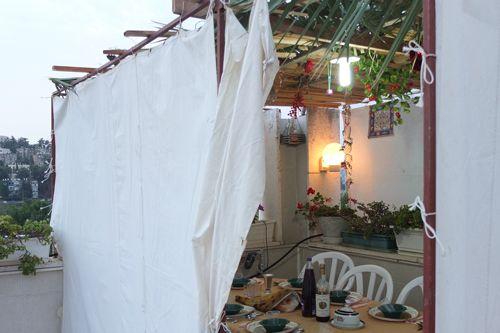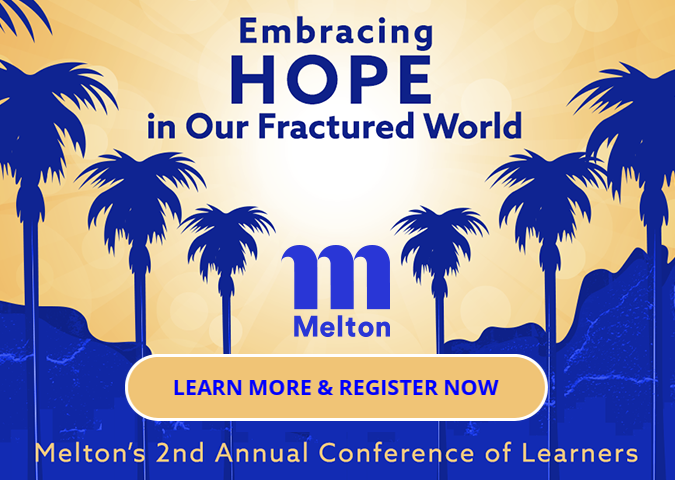What rain in the sukkah can teach us about resilience
A feeling of "this is not how it was supposed to be" permeates our sukkah this year.
Sukkot is supposed to be a time of abundance, but this Sukkot seems to be, instead, a time of grave concern. Like rain penetrating the sukkah, the suffering around us makes us uncomfortable. When it rains we find ourselves itching to abandon our temporary structure, resisting the reality of discomfort.
A unique understanding of an ancient teaching from the Mishnah, however, offers an important alternate perspective. It can help us better understand our current situation by reminding us that when we are confronted with sorrow and tragedy all around us, how we react to that sorrow is the one element that is still within our control.
Close to crumbling, the tomb of an ancient prophet is saved in Kurdish Iraq
A question is asked in the Mishnah, the foundation of our oral tradition: How long must one remain in the sukkah when it rains?
The Mishnah answers: until the food becomes ruined from the dripping rain. For then, as we exit the wet, inhospitable sukkah, we are meant to feel like servants who have been scorned by our master. We are to feel as if we have come forth to honor our by pouring him a cup of wine, and instead, the master has taken the ladle, poured it over our heads and thrown us out of the sukkah.
This rather shameful and depressing interpretation remains the dominant one. However, a fresh and deeply relevant reading of the same Mishnah by a thirteenth century Sephardic rabbi, Rabbi Yom Tov ben Avraham (the Ritva), emerged some eleven centuries after the Mishnah was first written down, and suggests to us a very different message.
Ritva articulates that it is not the leaving itself that is under discussion; rather, it is leaving the sukkah too hastily — returning to our homes at the first sign of rain, that is being censured.
The Mishnah positions those who flee too quickly from the mild discomfort of the sukkah as ungrateful servants who have come to serve the master but have quickly grown impatient, angry and resentful at the first sign of discomfort, splashing the wine from the wine ladle into the face the master, as if to exclaim dramatically — "fine, if you don't appreciate my service, then I am out of here."
Not to be taken literally, then, this Mishnah teaches us that to depart from the sukkah at the first sign of small discomfort, before the rain has become truly impossible to bear, insults the Creator who invited us to leave our homes and to dwell in the sukkah — outside, amidst nature, away from the creature comforts of our everyday lives.
It would seem that Ritva is recommending we display a bit of patience along with our devoted dedication, maintaining our faith even when things do not go as smoothly as expected. In doing so, we demonstrate to God that we're not going to bolt the very second things become uncomfortable.
It's not just that patience is a virtue. A lack of patience can lead to a kind of societal collapse on a larger scale. Failure to embrace and demonstrate confidence in proposed, multifaceted solutions to complex problems demonstrates that society as a whole has no patience for solutions that do not bear immediate fruit.
Whether reversing climate change, establishing better safety nets for underserved communities or putting in place better systems for combatting this pandemic, no true solution will come about overnight, and no wide scale regulations will ever produce immediate, satisfactory results for everyone.
If we pull the plug on such complex programs without giving them a chance to have impact, or immediately castigate new administrations the moment they seem to falter or after they make their first mistake, then there is no learning. There is no progress. There is no hope.
I like to think that figuratively "remaining in that sukkah," for just a bit longer than might be personally comfortable, can lift us up as well, especially if we do not bear those early, uncertain moments by ourselves. As the first droplets fall through the thatched roof of the sukkah in our lives, let's continue to sit there with everyone else under the proverbial drizzle just a little longer, turning to one another to bolster our strength and resolve.
The sukkah is the paradigmatic vulnerable shelter, but the people within it can create an iron wall of support for one another.
May we, this Sukkot, be inspired to open our eyes to those whose sukkot have been breached or fallen. May we patiently seek ways to sit with them, and may we strengthen each other to withstand the discomforts that this era brings our way, confident that the clouds will clear, the rain will pass, and that there will be better, sunnier days just ahead.
This article originally appeared in The Forward.
When you subscribe to the blog, we will send you an e-mail when there are new updates on the site so you wouldn't miss them.


